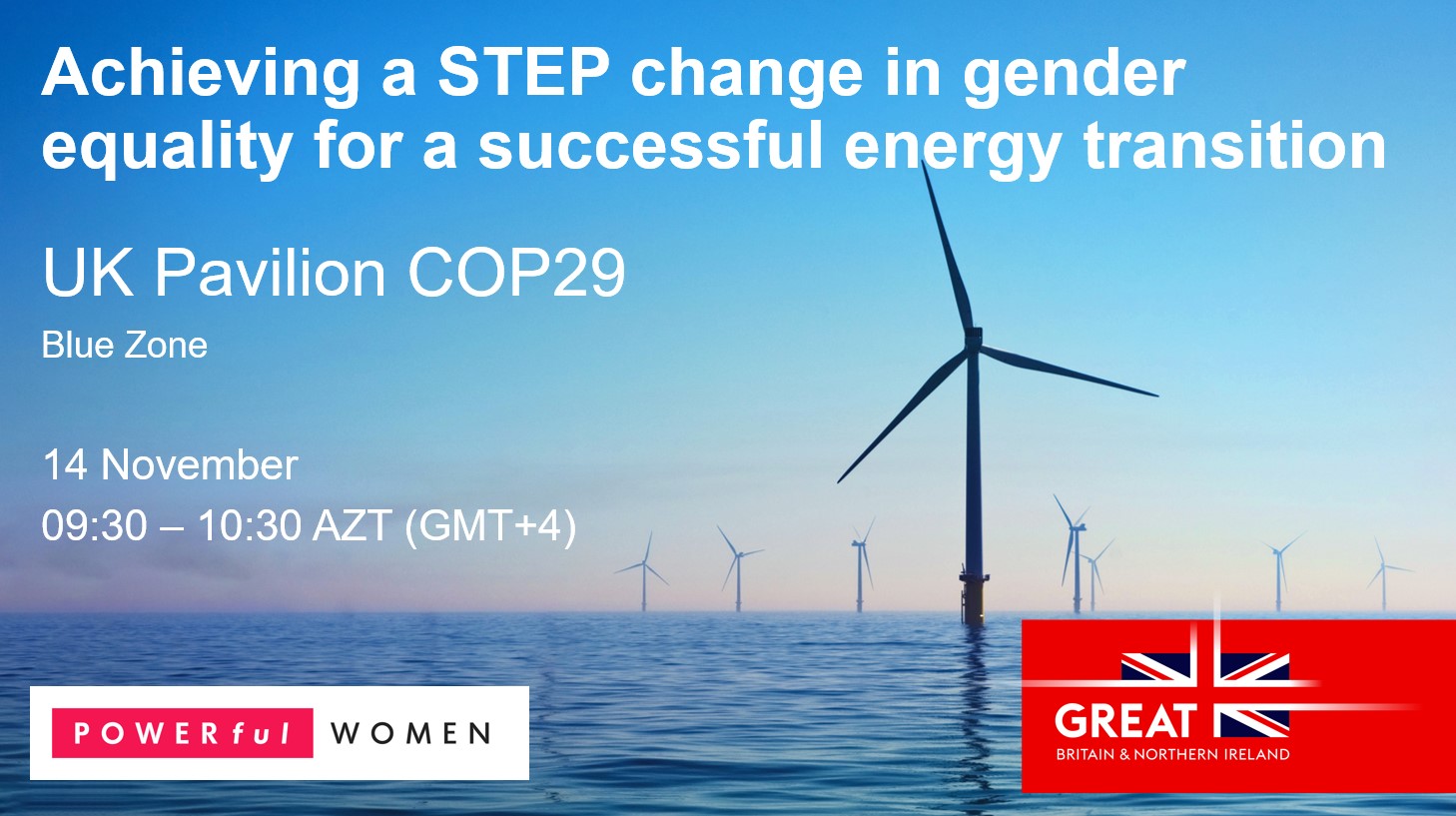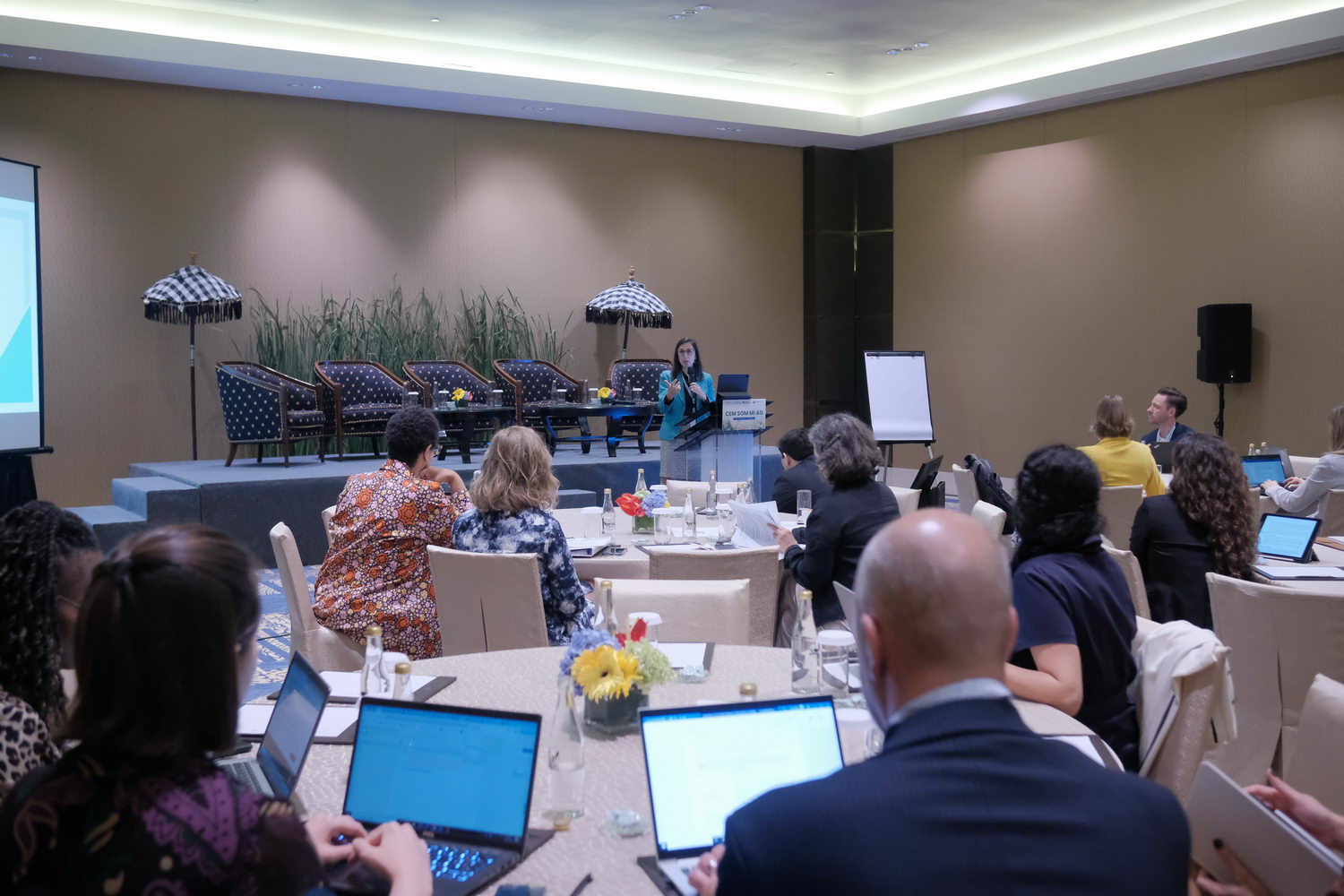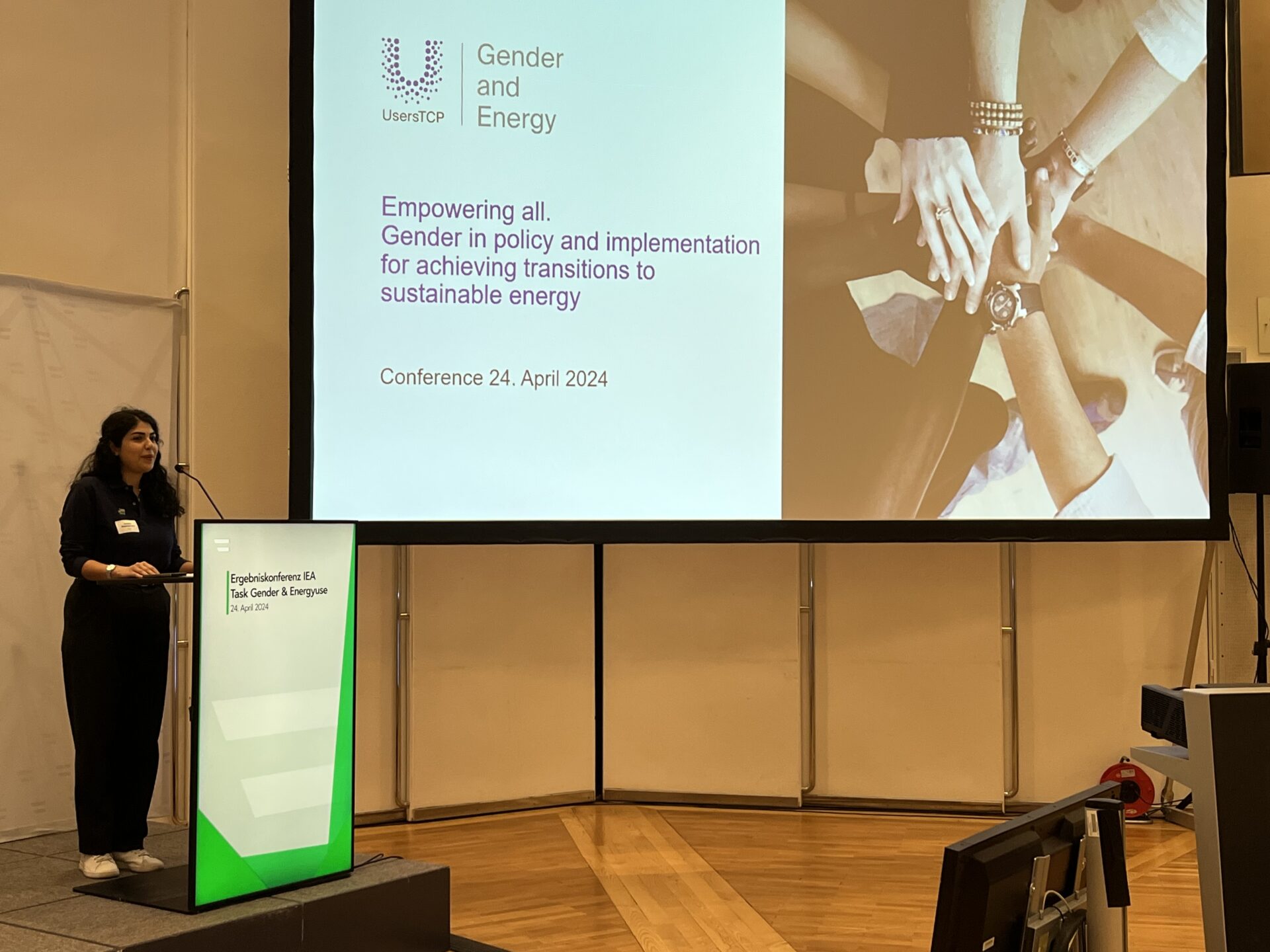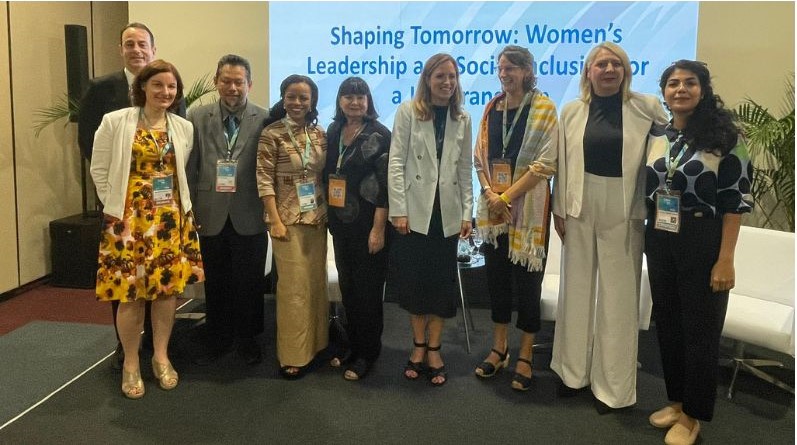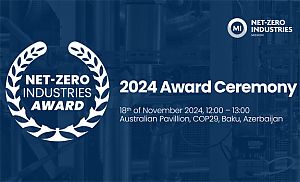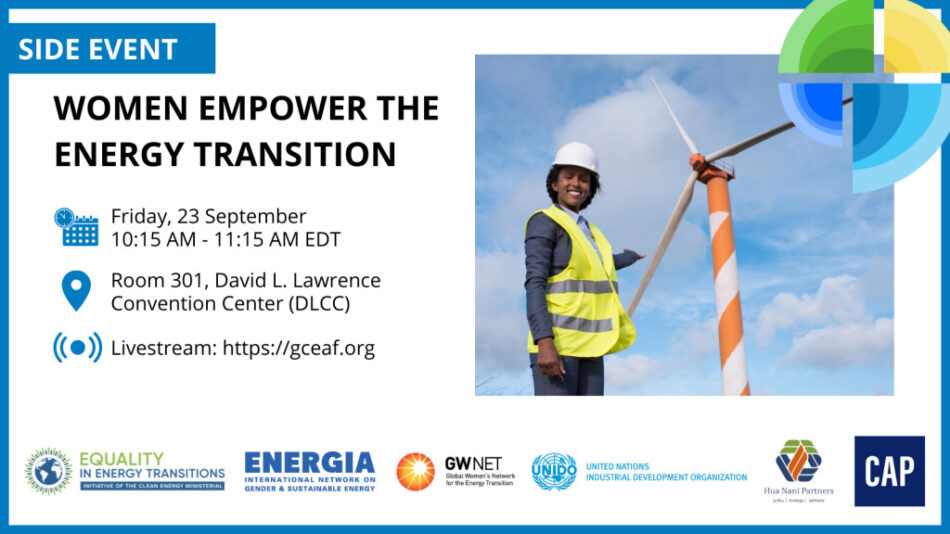
The first Global Clean Energy Action Forum (GCEAF), a joint convening of the 13th Clean Energy Ministerial and the 7th Mission Innovation ministerial, took place in Pittsburgh, September 21–23, 2022. As part of this major event, the Equality in Energy Transitions co-organized a high-level side event, “Women Empower the Energy Transition”, with the Gender and Energy Compact Coalition, Hua Nani Partners, and the Centre for American Progress. This side event was one of only three gender equality-related events at the GCEAF.
“Women Empower the Energy Transition” brought the expertise and the experiences of a diverse group of inspiring speakers from the governments, private sector, and non-profit and youth organizations together, emphasizing the urgency of empowering the actions, aspirations and voices of women, youth, marginalized and underrepresented communities to drive to a just and inclusive energy transition.
This side event was moderated by Sheila Oparaocha, the Director of ENERGIA International Network on Gender and Sustainable Energy. Oparaocha commenced the event, accentuating that gender equality and empowerment of women and girls are key to a just and inclusive clean energy transition, which ensure energy access. Although women are increasingly active in the energy workforce and as entrepreneurs contributing to economic growth and industrial development, UN Women reported that the majority of energy policies and nationally determined contributions are gender-blind. Consequently, women’s (specific) needs, experiences, and knowledges are not yet well-represented in energy policy making and planning.
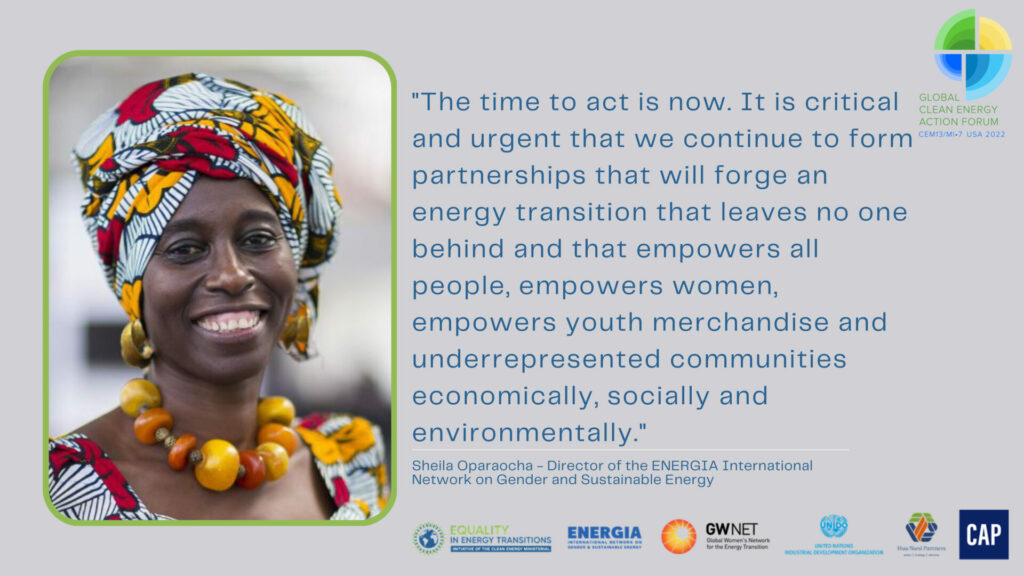
The floor was then given to Mollie Johnson, an Associate Deputy Minister at Natural Resources Canada (the government of Canada), to present her opening remark about the necessity of an equitable and inclusive energy transition. Johnson was pleased to reflect on Canada’s championship of inclusivity in the energy transition and its leadership in the Equality Initiative.
Another keynote speaker of this side event was Paul Nzomo Mbuthi, a Senior Deputy Director of Renewable Energy from the Ministry of Energy, Kenya. Another keynote speaker of this side event was Paul Nzomo Mbuthi, Senior Deputy Director of Renewable Energy from the Ministry of Energy, Kenya. Mbuthi shared the invaluable lessons Kenya has learned over the last years with the audience and brought attention to the importance of context while choosing measures to empower women and advance their participation in the energy transition. He mentioned that millions of women in Sub-Saharan Africa still lack basic access to an affordable, reliable, sustainable, and modern energy, which negatively affects their fundamental human right, as well as their health, livelihood, and local environment. Mbuthi identified innovation and development as solutions to reduce the cost of the existing energy technologies and declared Kenya is committed to reach one hundred percent renewable energy or renewable electricity by 2023, if not earlier.
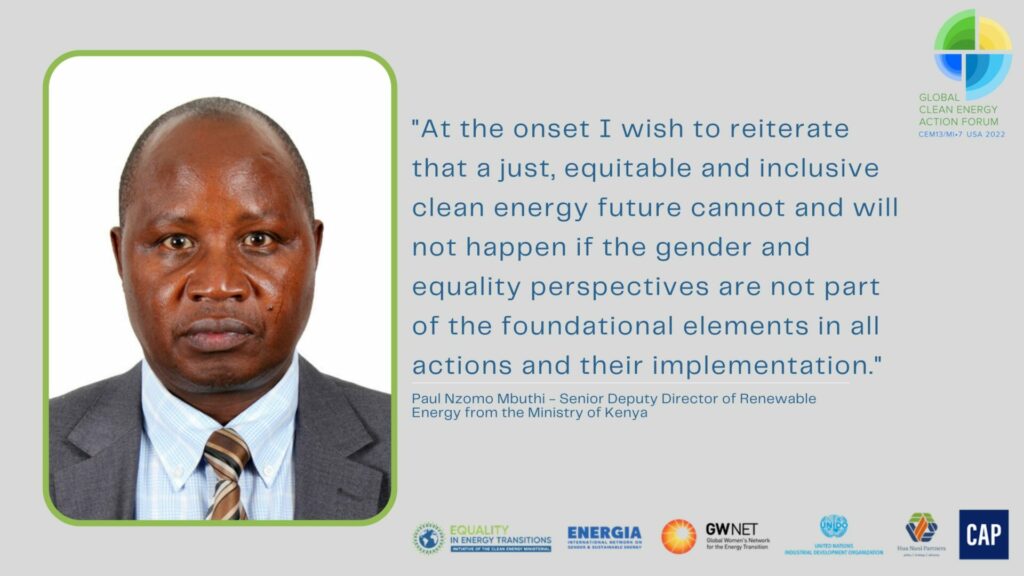
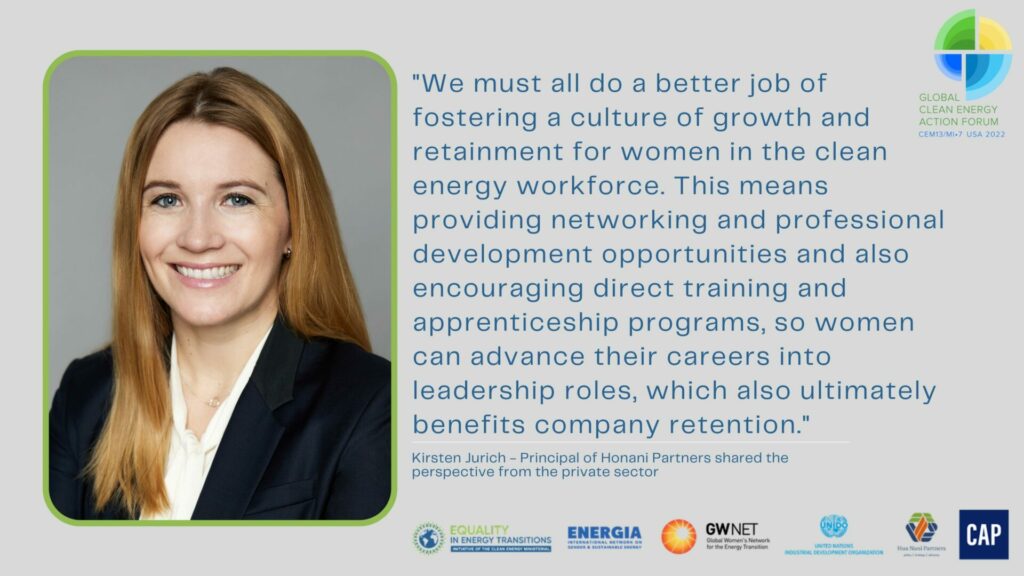
The 2022 Emerging Leader Award
Winner
Pooja Shah (she/her) is a senior consultant within DNV’s energy storage emerging technologies advisory. She is passionate about advancing equity while addressing climate change. Her focus is on developing and implementing innovative and equitable solutions to accelerate the energy transition and decarbonize the energy and transportation industries.
During her acceptance speech, Shah mentioned that growing up in India, she is not unfamiliar with the impacts of climate change and has lived through extreme weather events, poor air quality, and power outages. In 2010 when graduating high school, she experienced extreme temperatures and connected the dots in weather and climate change, as well as the impact it had on low-income households, especially women of color. Shah believes the transition to clean energy must be just and equitable: “I urge you all to continue making gender equity and social justice a priority. And I urge you to continue inspiring more women breaking barriers for them in the clean energy sector, and continue bringing more diverse voices into this conversation because it is critical that we do so right now.”
The 2022 Woman of Distinction Award
Winner

Sam Craft (she/her) started her career by taking up a volunteer administration role in the South Australia start-up National Renewables Group (NRG). In five years, Craft forged her way as a unique and remarkable leader in the renewable energy industry and became the director of energy in one of the largest providers of residential and commercial solar systems in South Australia. Sam is a Board Member of the Smart Energy Council, founding member of Australian Women in Solar Energy (AWISE), an SA Power Networks Solar Industry group representative, and Committee Member for Solar Cutters.
As part of her acceptance speech, Craft said: “To any person looking to make a difference, my advice to you is to talk to a woman in your life, have an open conversation about gender equality and how we can bridge the gap in your workplace and life.”
The 2022 Organizational Award
Winner
The Organizational Award, which recognizes an organization that has taken actions to recruit, develop and retain women within the clean
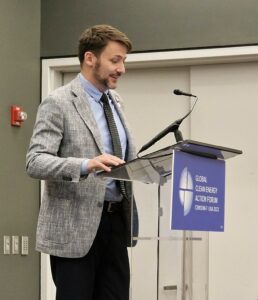
energy sector, was awarded to the Energy Ministry of Chile. The Minister of Energy, Diego Pardow Lorenzo, accepted the award on behalf of the “hardworking civil servants who work at the Ministry of Energy of Chile” striving for gender equality at the Chilean Energy Ministry.
Chile’s “Energia + Mujer / Energy + Women” conducted a survey that showed women’s participation in leadership positions in the energy sector was only at 10%. Therefore, Chile is “passing legislation that will force corporations to have at least 30% of women on the board – it is not specific to the energy sector, but it includes all the companies that are working in the energy sector.” The Chilean Ministry of Energy is also working with both the recently founded Gender and Human Rights Office and the local educational communities to raise awareness about the significance of women’s participation in the energy sector.
Finally, Minister Lorenzo took the opportunity to announce that Chile is joining the Equal by 30 campaign of the Equality Initiative.



